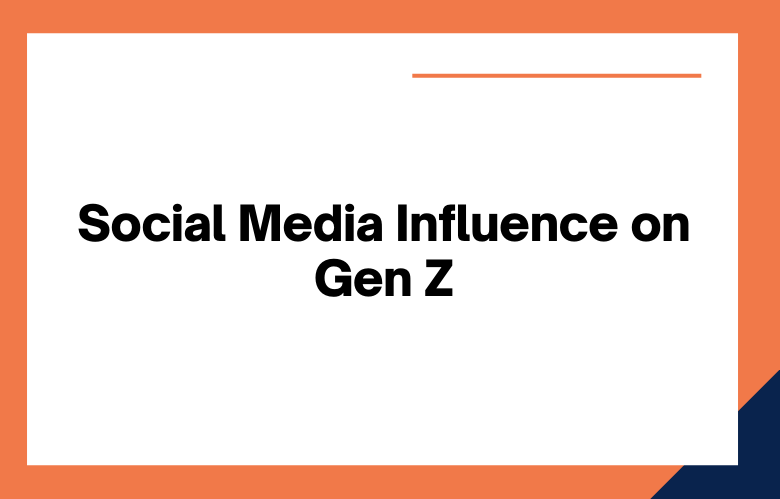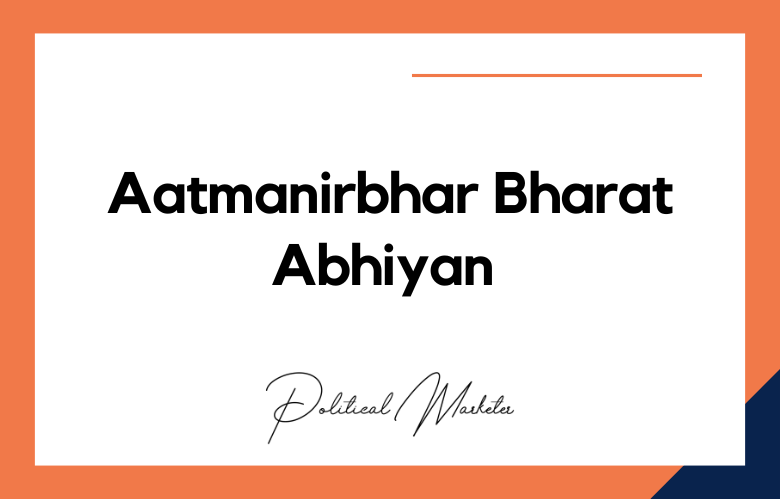It is no secret that social media has a profound effect on how we think and behave. This is true for Generation Z, who have never known a world without social media.
A recent study shows that Social media unexpectedly shapes Generation Z’s political viewpoints.
Generation Z is the first generation to grow up with social media. This has led to them having a different political standpoint than older generations.
Due to social media, Gen Z is more politically engaged and aware than any other generation before them.
As a result, politicians and organizations are paying more attention to Generation Z’s opinions on political issues.
You’ve probably heard much about “Generation Z” in the past few years. They’re people currently coming of age and different from any previous generation in many ways.
One particularly relevant way to this discussion is how they get their information, specifically how social media affects their political standpoint.
Take a closer look at how Gen Z uses social media to learn about politics, and we’ll explore some of the findings from recent studies on the topic. Stay tuned – it’s going to be an exciting ride!
The Role of social media in the Political Landscape
The Role of social media in the political landscape is complex and exciting. I think it’s essential to understand how the public uses social media during elections because we need to know how this influences others.
The Role of social media in the political landscape is that it helps politicians reach out to their targeted audiences.
Social media is the new frontier of political campaigning. It has changed how people relate to politics and has been instrumental in giving a voice to marginalized communities.
Social media has also been scrutinized despite being vital for activists and politicians. It’s a breeding ground for hate speech, fake news, and cyberbullying.
How different social media platforms are used to share political opinions
The most important social media platforms for politics are Twitter, Facebook, and Instagram.
You can say anything you want on Twitter, but it’s less common for people to talk about politics. The best thing to do is share stories and facts.
People tend to share their political opinions on social media. For example, Twitter is the most used platform for spreading news and political views.
Facebook is a central source for sharing political opinions on social media. People often post pictures or articles to support specific politicians, but they do not always directly advocate for their preferred candidate.
The Effects of Social Media on the Voting Process
Undoubtedly, social media is the most influential platform in today’s world. It is a tool for entertainment and an instrument through which political leaders gain support or lose popularity.
Social media is not a huge factor, but it impacts voting.
Social media plays an essential role in the political process. They’re helping candidates connect with voters, making getting their message out there easier. With social media, people can reach many different voters at once.
Social media is one of the biggest influences in today’s politics. Many candidates use social media to push their political agenda.
One of the greatest threats to our democracy is social media.
You can get news on candidates, see who they are connected to, and discover their stances on issues that matter to you.
Today, more than half of Americans get political news from Facebook and Twitter.
How Politicians are using social media to Connect with young voters
Politicians are using Twitter to communicate with young voters. They have found it suitable for their campaigns because more people use it than other social networks.
Unfortunately, the young generation is becoming increasingly disconnected from politics. In a recent study, only one out of five teenagers would vote if they were allowed to do so.
Some politicians believe social media is the best way to connect with young voters. They can reach a massive audience without spending too much on TV ads or radio spots.
It’s been found that 71% of millennials use social media, and 59% are likely to influence their vote based on what they see or read on social media.
Politicians use social media to reach young voters because they’re the most significant demographic.
Politicians use social media to connect with young voters by posting on their pages. Politicians must be as active and visible on social media with the more youthful generation becoming increasingly connected.
One way that politicians are using social media is through their Facebook pages. This platform allows a politician to interact directly with people, and they can better understand the needs of voters.
Although social media is not new, it has become a massive part of our daily lives. Unsurprisingly, politicians have started using these platforms to connect with voters.
Politics can sometimes be boring, but that’s no reason to skip learning about them. You should pay attention because it impacts your life and your world.
Candidates use social media to reach out to young voters, who popular accounts and memes can sway.
The Future of social media and Politics
The future of social media and politics isn’t just an internet thing. It’s going to be a reality that is happening in the world right now.
Many platforms like Facebook and Twitter have been used to connect people, but recently, they’ve also become a place to see what politicians are trying to hide.
The best way to get people involved in politics is through social media. It’s the most effective platform for getting people to vote and sharing information about candidates.
Politics and social media are two things that shouldn’t be mixed. It would create problems with the users, who don’t want to participate in politics.
Social media has become a powerful tool for businesses to reach their customers quickly, but politicians and activists also use it to rally support. They use social media to get more people and organize campaigns.
Conclusion
We can help you engage with Generation Z in a way that builds trust and credibility. Let us know if we can be of any assistance to your firm’s social media marketing strategy!
Frequently Asked Questions (FAQs)
How is Generation Z different in their political engagement compared to previous generations?
Gen Z is more digitally native, socially aware, and inclined to engage politically through online platforms rather than traditional channels like newspapers or rallies.
Why is social media such a powerful tool for Gen Z’s political influence?
Because it provides real-time access to news, peer opinions, activism campaigns, and platforms for self-expression and civic engagement.
What platforms are most influential for Gen Z political conversations?
Instagram, YouTube, TikTok, X (formerly Twitter), and even Reddit play a major role in shaping Gen Z’s political opinions and actions.
How does TikTok influence Gen Z’s political views?
TikTok’s algorithm-driven feed and creator culture simplify complex topics, often blending politics with entertainment to increase reach and relatability.
Are memes and short-form videos affecting political perception?
Yes, memes, Reels, and Shorts convey political messaging in humorous or satirical formats, which increases resonance and shareability among Gen Z.
Do Gen Z users trust social media as a political information source?
They do—but with caution. They often cross-check across platforms or with creators they consider authentic and unbiased.
How does influencer activism shape Gen Z political behavior?
Influencers who take public stances on issues can mobilize followers for causes, protests, petitions, and even voter turnout.
Is Gen Z more issue-driven or party-driven?
They are largely issue-driven, prioritizing values like climate action, social justice, and inclusivity over traditional party affiliations.
What role does YouTube play in Gen Z political education?
YouTube acts as a knowledge hub with explainer videos, interviews, debates, and creator-led analysis of political topics.
How does algorithmic content curation affect Gen Z political ideology?
Algorithms reinforce existing viewpoints by showing similar content, which can lead to political echo chambers or radicalization.
Are Gen Z voters politically active offline as well?
Yes, many translate online engagement into real-world action—attending rallies, voting, or volunteering for causes and campaigns.
Can political campaigns effectively reach Gen Z via social media?
Yes, but only with authentic, creative, and non-condescending content that aligns with Gen Z’s values and communication style.
What kind of content resonates most with Gen Z politically?
Authentic stories, behind-the-scenes campaign content, explainers, short videos, humor, and user-generated content.
How does Gen Z respond to political ads on social media?
They are skeptical of traditional ads but respond well to value-driven content, storytelling, and influencer collaborations.
Does cancel culture influence Gen Z’s political actions?
Yes, cancel culture has empowered Gen Z to hold public figures accountable, often driving mass online movements and brand boycotts.
Are Gen Z users participating in political discourse on social media?
Actively. They debate in comments, create political content, participate in challenges, and follow issue-specific hashtags.
How do Gen Z’s social feeds impact their political identity?
Their feeds reflect peer values and creator content, shaping their perception of what’s politically and socially acceptable or urgent.
Do social media algorithms polarize Gen Z politically?
In some cases, yes—by reinforcing confirmation bias, they can limit exposure to diverse viewpoints or opposing perspectives.
What strategies should politicians use to connect with Gen Z?
Authenticity, values alignment, humor, platform-native content, and collaborating with youth creators are key.
What is the long-term impact of social media on Gen Z’s political development?
It’s cultivating a generation that is hyper-aware, action-oriented, and expects transparency, inclusivity, and accountability from leaders.
One way to get in touch is by filling out our online form on this site or give us a call at
+91 9848321284. Let’s work together today!











